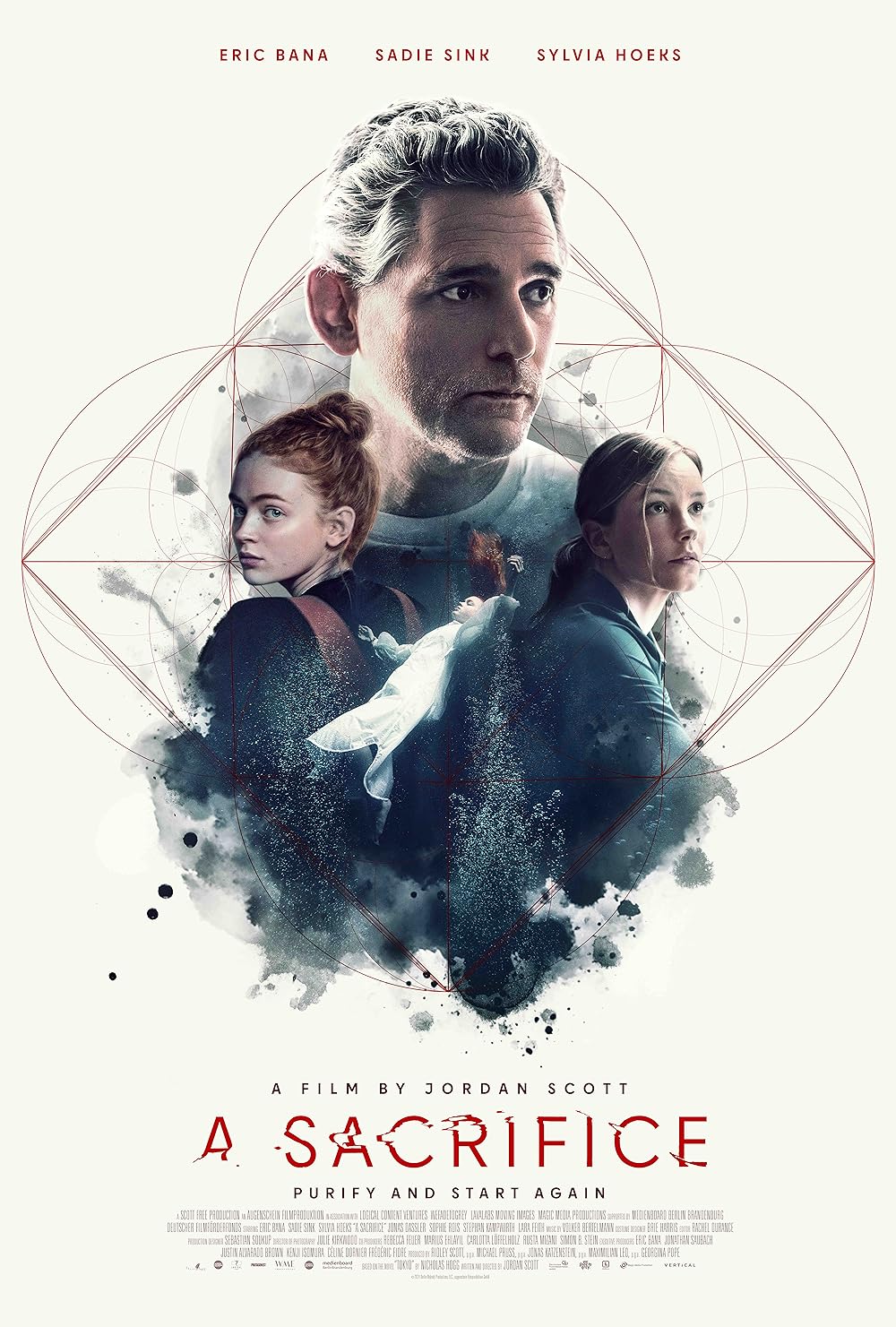The first two-thirds of "A Sacrifice" are a largely leaden affair that offers viewers little that they haven't seen before. It isn't even awful so much as it is intensely forgettable—the kind of film whose title eludes you even as you watch it. Unfortunately, it then proceeds to get infinitely worse in its final act as it shifts from tediousness to outright lunacy with a series of plot developments that will frustrate and irritate anyone who has put any sort of investment in the goings-on of the narrative, though I suspect that there will be very few of those viewers by the time it begins to fully go off the rails.
Having fled America for Berlin following a separation from his wife, social psychologist Ben Monroe (Eric Bana) is working diligently on his latest book, this time on the subject of the appeal and perils to be found in groupthink. As part of his research, he is allowed to look in on the scene of a mysterious group suicide that he suspects may be connected to a local cult. There, he meets Nina (Sylvia Hoeks), the cop in charge of the investigation. At the same time, his 16-year-old daughter, Mazzy (Sadie Sink), arrives in Berlin to stay with him. While he tries to reestablish a relationship with her, complications exacerbate when he and Nina begin a romantic relationship.
Upon arriving, Mazzy meets Martin (Jonas Dassler), a seemingly nice young man who helps her navigate the trains and wants to see her again. He says he is involved with an environmental NGO and invites her to a meeting with his group, where he introduces her to the group's charismatic leader, Hilda (Sophie Roos). Although Mazzy sees Martin and the group as a friendly alternative to her strained relationship with her father, it becomes apparent she's fallen in with the very same cult her father has been looking for. What's more, said cult been making increasingly apocalyptic statements about society's disintegration and how "sacrifices" need to be made to make things right again.
Some interesting films have been made over the years dealing with cults and the insidious ways in which they work themselves into the minds of vulnerable people. ("Ticket to Heaven" (1981), "Split Image" (1982), and "Faults" (2014) come to mind.) Those films took the subject seriously without reducing it to a plot device. "A Sacrifice," by comparison, never displays any interest in what drives people to fall into this way of thinking. Making her feature debut as writer-director, Jordan Scott handles the material (adapted from the 2015 novel Tokyo by Nicholas Hogg) in a slickly impersonal manner, and the performances by the undeniably talented cast are equally meh.
Then comes the finale, where everything gets loopy and not in a good way. The fact that plot threads involving Ben's investigation and Mazzy's dalliance with Martin and his friends eventually come together will probably not surprise too many people, I suppose. However, my guess is few will fully anticipate the silliness and contrivances involved in bringing them together; the screenplay willfully throws away whatever serious points it might have hoped to make to turn the story into a simple-minded race against time. Having not read Hogg's book, I cannot say if Scott's adaptation is faithful to its source or if it has gone off in its own direction, but if it's the latter, he can at least be comforted by the fact that the title change will ensure that few of the people who actually see this will connect it with his work.
Watching "A Sacrifice" is like watching an extra-long episode of a middling procedural series that is now a season or two past its prime. No one involved on either side of the camera ever seems truly engaged with the material, and as a result, viewers can't take up much interest in it. Even when it takes its turn toward the idiotic in its final scenes, it never manages to develop into anything that is even momentarily interesting. If ever there was a film that seemed destined to spend eternity playing unnoticed in the background while people are folding their laundry or doing other busywork, this is the one.




















